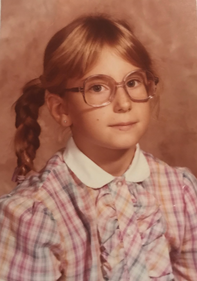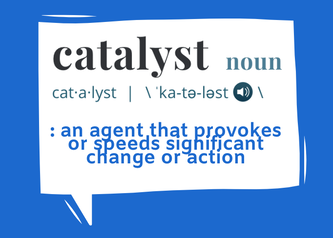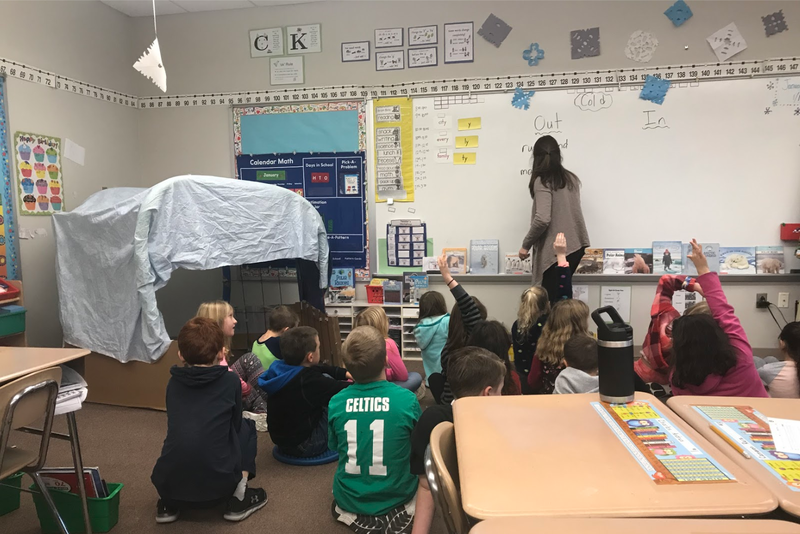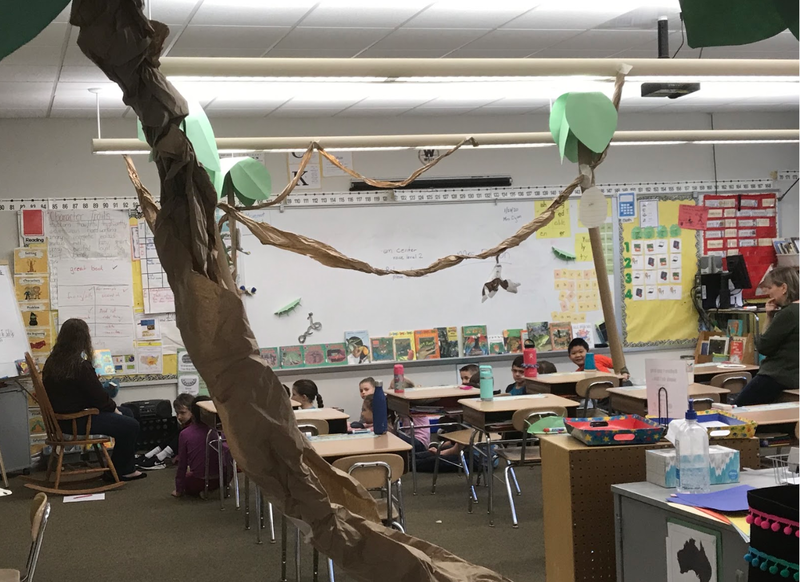THE INSPIRED
|
|
By Liz Garden, Principal of Mayo Elementary School in Holden, MA and Inspired Learning Catalyst As educators, we have been “doing school” for a long time. The main change over the years is that your job title has changed from student to educator, but we have all been part of schools for most of our lives. This week, I began the process of registering my daughter for kindergarten. That fact has me thinking about what my beginning school experiences were like versus what she will experience over the next several years. I am hopeful that her learning experiences and how she does school will be very different from her mama’s experiences.  I remember bits and pieces of my early years in school. I remember being afraid of my 2nd grade teacher. I remember that she did not seem to like me or any of the kids in the class. I remember the desks being in rows. I remember breaking my left arm and being forced to fill out worksheets and practice handwriting with my non-dominant hand. What I don’t remember was being engaged in the learning process. I don’t remember being motivated to learn or even being asked what I was interested in. In fact, I have a vivid memory of struggling with greater than and less than, and when my dad tried to help me understand what it meant and why it was an important concept to grasp, I simply told him that I didn’t need to know that, I just needed to know the answer. Clearly the idea of Universal Design for Learning had not made its way into classrooms, especially not my 2nd grade classroom at Washington Elementary in Alliance, Ohio. Fast forward thirty or so years to 2020; I popped into some 2nd grade classrooms in my school the other day. I saw student desks in clusters, allowing for collaboration and community. In many classes, I actually never saw students sitting in their desks. The 2nd graders were learning about habitats and their teachers had decided to turn each of their classrooms into a different habitat. Students had created an underwater ocean mural in one room. There were 3D paper icicles hanging from the ceiling and the beginning stages of an igloo made out of pool noodles, garden wire supports and a sheet in another room. One classroom had crumpled up butcher paper vines hanging from the light fixtures (don’t tell the fire marshal) and giant leaves to transform it into a “rainforest.” In the ocean room, students were investigating and researching different creatures with their science journals, trying to determine if they were invertebrates. Some students were reading science picture books on their own, looking for answers. Others were exploring information cards containing realistic photos of ocean creatures. And the best part was that the students in the ocean room where not the students who were normally in that teacher’s classroom. My 2nd grade team decided that they would teach this unit by each focusing on one habitat and letting the students rotate into each classroom. Teachers were learning about and spending time with all of the students in the grade while students were getting the chance to learn with and from all of the teachers on the team. As my daughter enters public school next year, I am thankful that it won’t be the same public school experience that I had decades ago. Today’s educators are exploring the world of Universal Design for Learning and realizing that “doing school” means figuring out ways to engage and empower our students instead of telling them what to do and expecting them to simply comply. I love this thought from George Couros in the book Innovate Inside the Box: Empowering Learners Through the UDL and the Innovator’s Mindset: “If we understand information on a deeper level and do something with it, we also are more likely to retain it as well.” Those 2nd graders who are exploring, investigating, and asking questions about the ocean creatures and the ones who are playing with Lego Inuit people in an igloo in their classroom, incorporating newly learned facts about the Arctic - I am hopeful that we are reaching these learners on a deeper level. The main goal of Universal Design for Learning is to create expert learners who are purposeful & motivated, resourceful & knowledgeable, and strategic & goal-directed. Just as we have all kinds of learners, we have all kinds of educators who are at different comfort levels with Universal Design for Learning. No matter whether you are an educator who just learned what the abbreviation UDL stands for after reading this post or if you are an educator who has been implementing Universal Design for Learning components into your classroom for a while, the CAST website is a great place to start or to continue your learning. Some books to check out include: Universally Designed Leadership, UDL Now, or the new text Innovate Inside the Box. You can also check out the work being done by Dr. Katie Novak and Dr. Kristan Rodriguez. Thankfully, my daughter, and so many other young learners, are stepping into classrooms that are so different from what we experienced as kids. I want her to be engaged in learning. I want her to feel empowered. I want her to have a voice and choice in her educational pursuits. Thanks to UDL, I know that my daughter and all of the other learners of today and tomorrow will not be a part of the “one size fits all” teaching and learning of the past. I can’t wait for her to “do school” in a whole new way!
 Charting a course for the future of school is an exciting undertaking. One of the parts of our work at the Inspired Learning Project that we enjoy most is having the chance to connect with like-minded educators who are leaders of change. Whether as educators, authors, researchers, or learners - they take steps to support school environments that align with their beliefs about learning. This year, The Inspired Learning Project has partnered with this talented group in order to gain their support in acting as catalysts for building the next generation of schools. With that in mind, we are excited to introduce you to the Inspired Learning Catalysts. Through their role, they will regularly share their thoughts and perspectives through our blog. In addition, we look forward to featuring their work through digital conversations, the chance to connect at professional development workshops, and more. Our ILP Catalysts include: Nicole Bottomley, Principal, Holliston High School Jenn Clifford, Principal, Cutler School, Hamilton-Wenham Public Schools Kathleen Duff, Director of Career and Technical Education, Newton Public Schools Liz Garden, Dr. Leroy E. Mayo Elementary School, Wachusett Regional School District Brian Hodges, Social Studies Coordinator, Attleboro High School Dr. Beth Holland, Researcher & Writer, Newport, RI Amanda Hough, Teacher, Mashpee Middle/High School Patrick Kelley, Principal, Triton Regional High School Erin Lachapelle, Dean of Students, Ashland High School Patrick Larkin, Assistant Superintendent, Burlington Public Schools Ted McCarthy, Principal, Sutton High School Pam Moran, Author/Retired Superintendent, Albemarle County Public Schools, VA Toby Reed, Teacher, Attleboro High School Kelley St. Coeur, Principal, Ashland High School Colleen Terrill, Teacher, Seekonk Erik Tracy, Principal, Hamilton-Wenham Public Schools Paul Vieira, Assistant Superintendent, Ashland Public Schools Are you interested in being an Inspired Learning Catalyst? Email [email protected] to learn more about this opportunity. |
Click above to share a practice that promotes student agency, ignites students' passions, or creates a bridge between classrooms & the real world.
Click above to nominate an educator to be celebrated by the Inspired Learning Project.
Archives
November 2020
Categories |



 RSS Feed
RSS Feed